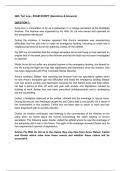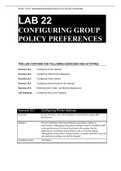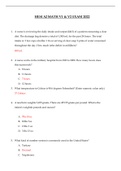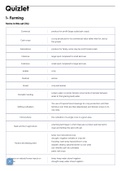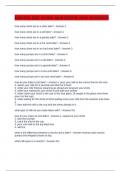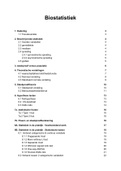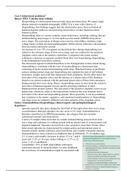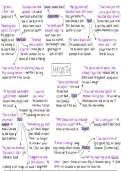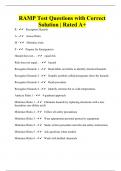QUESTION 1:
Anna won a competition to fly as a passenger in a vintage aeroplane at the Nostalgia
Airshow. The Airshow was organised by Fly With Us Ltd who owned and operated all
the aeroplanes taking part.
During the Airshow, it became apparent that Anna’s aeroplane was experiencing
difficulties and her pilot had to make an emergency landing, choosing to crash into a
neighbouring forest to avoid the watching crowds on the airfield.
Fly With Us Ltd admitted that the vintage aeroplane Anna was flying on had reported an
engine fault in the week prior to the Airshow and that the fault had not been investigated
or repaired.
Whilst Anna did not suffer any physical injuries in the emergency landing, she feared for
her life during the flight and has had nightmares and flashbacks since the incident. She
has been diagnosed with Post Traumatic Stress Disorder.
Anna’s husband, Bataar, was watching the Airshow from the spectators’ gallery when
he saw Anna’s aeroplane get into difficulties and make the emergency landing. Bataar
now has severe anxiety and depression because he had feared Anna had been killed.
He had a period of time off work last year with anxiety and depression caused by
bullying at work. Bataar has now been prescribed antidepressants and is undergoing
trauma counselling.
Celina, a firefighter stationed at the airfield, climbed into the wreckage to rescue Anna.
During the rescue, the wreckage caught fire and Celina had to act quickly. As a result of
her involvement in this incident, Celina has not been able to return to work and has
been diagnosed with an anxiety disorder.
Dexter, an aviation enthusiast, was listening to the commentary of the Airshow on his
radio when he heard about the events surrounding the crash landing of Anna’s
aeroplane. The following week, Dexter visited the airfield where he saw the wreckage of
the aeroplane still in situ in the forest. The sight of the wreckage shocked Dexter and he
has experienced a period of depression.
Advise Fly With Us Ltd as to the claims they may face from Anna, Bataar, Celina
and Dexter which arise from these events and whether these claims will be
successful.
,ANSWER 1:
Anna v Fly With Us Ltd (‘FWU’) - Negligence
Anna can consider suing FWU in the tort of negligence.
Negligence is a breach by the defendant (D) of a legal duty of care owed to the claimant
(C) that results in actionable damage to C, unintended by D.
Duty of care?
Anna’s is pure psychiatric harm (PPH) that does not flow from physical injury or
damage. Anna did not suffer any physical injuries in the landing.
For a duty of care to be owed where C suffers PPH:
● It must be caused by a sudden shock; and
● either be a medically recognised psychiatric illness or a shock-induced physical
condition.
Anna feared for her life during the accident, which clearly induced sudden shock. Anna
was then diagnosed with PTSD.
A primary victim is someone actually involved in the incident, who was (as per Page v
Smith):
· In the actual area of danger; or
· reasonably believed they were in danger.
Anna was a primary victim as she was on the aeroplane when it performed the
emergency landing.
Also, the risk of physical injury must be foreseeable, but is not necessary for the risk of
psychiatric harm to be foreseeable (Page v Smith; Dulieu v White & Sons). It was
reasonably foreseeable that Anna was at risk of physical injury during the emergency
landing, which involved FWU’s plane crashing into a forest. It is irrelevant whether
Anna’s PTSD was reasonably foreseeable or not.
Thus, FWU owes Anna a duty of care.
Breach of duty?
, Standard of duty of care
The duty is breached if FWU falls below the standard expected of a reasonable person
in their position (Blyth v Birmingham Waterworks). FWU will be judged as a competent
plane owner and operator in these circumstances.
Does D’s conduct fall below the required standard?
A reasonable plane operator would have reported and sought to fix the engine fault that
occurred a week prior to the Airshow. The court will take into account:
The magnitude of risk
If there is risk of very serious harm, D must take appropriate precautions to mitigate the
risk, as long as they know about the risk (Paris). There is a clear risk of very serious
harm from keeping a plane with a faulty engine in operation and allowing Anna to fly on
it. FWU failed to take appropriate precautions by grounding and repairing the plane.
Cost and practicability of precautions
If taking precautions would have been impracticable and incurred great expense, this
may excuse D for not doing so, provided the risk of harm is small (Latimer v AEC Ltd).
Fixing the engine may have been expensive given the complexity of the task, but FWU
do not have an excuse for not doing so given the high risk of harm.
Proof of breach
Res ipsa loquitur - ‘the thing speaks for itself’ - applies in circumstances where the
courts are prepared to infer neglect against D without detailed evidence of what D did or
did not do. There was a reported engine fault on the plane, but this is not subsequently
confirmed on the facts as the definitive cause of the crash.
There are three conditions for res ipsa loquitur to apply (as per Scott v London & St
Katherine Docks Co):
● 1) The thing causing the damage must be under the control of the defendant or
someone for whom the defendant is responsible
● 2) The accident must be such as would not normally happen without negligence
● 3) The cause of the accident is unknown to the claimant - so that the claimant
has no direct evidence of any failure by the defendant to exercise reasonable
care.

